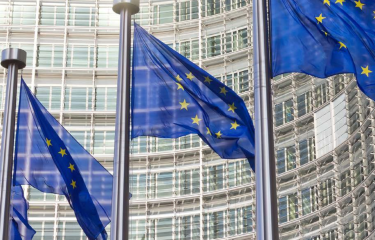
Building Resilience Against Election Influence Operations: Preparing for the European Elections in 2024 and Beyond
Conclusion
Information operations that cast doubt on legitimate election outcomes are major threats to electoral integrity and the foundation of democracy. Autocratic actors are conducting more persistent and sophisticated election influence campaigns across the world. Emerging developments—such as the proliferation of accessible AI tools—are likely to exacerbate the current challenges with maintaining the integrity of the information environment ahead of the June 2024 EP elections, as well as other elections throughout Europe and around the world.
The electoral information environment across Europe faces evolving threats from foreign and domestic actors. Autocratic actors’ electoral interference strategies are increasingly integrated and multifaceted, with many malign actors increasingly coordinating their efforts. As autocratic actors continue to refine their influence tactics, it will be essential for European countries and others to adopt a similarly holistic approach. This includes working collectively across all sectors of society and learning from the experiences of others facing similar challenges. While there is no “one size fits all” approach, now is the time for European countries and their partners to review and adapt the tools in their arsenals to combat election influence operations. Countries can mount a strong defense of their democratic processes by continually learning from each other and working proactively across sectors. The five best practices described in this report are just a few ways European countries, and other countries facing similar threats, can bolster their preparedness and ensure resilience in the face of information-related threats ahead of future elections. How well European countries and others are able to do so will be critical to the foundation of democracy and electoral processes across the region for years to come.
About The International Foundation for Electoral Systems (IFES)
The International Foundation for Electoral Systems (IFES) is a global, nonpartisan organization that advances democracy for a better future. IFES collaborates with civil society, public institutions, and the private sector to build resilient democracies that deliver for everyone. As a global leader in the promotion and protection of democracy, IFES’s technical assistance and applied research develops trusted electoral bodies capable of conducting credible elections; effective and accountable governing institutions; civic and political processes in which all people can safely and equally participate; and innovative ways in which technology and data can positively serve elections and democracy. Since 1987, IFES has worked in more than 145 countries, from developing to mature democracies.
ifes.org | [email protected]
About The Alliance for Securing Democracy at GMF
The Alliance for Securing Democracy (ASD) at the German Marshall Fund of the United States (GMF) is a nonpartisan initiative that develops comprehensive strategies to deter, defend against, and raise the costs on autocratic efforts to undermine and interfere in democratic institutions. ASD has staff in Washington, DC, and Brussels, bringing together experts on disinformation, malign finance, emerging technologies, elections integrity, economic coercion, and cybersecurity, as well as Russia, China, and the Middle East, to collaborate across traditional stovepipes and develop cross-cutting frameworks.
securingdemocracy.gmfus.org | [email protected]
Disclaimer: The views expressed in this publication are the views of the author(s) alone.
Cover photo credit: VanderWolf Images | Adobe Stock



